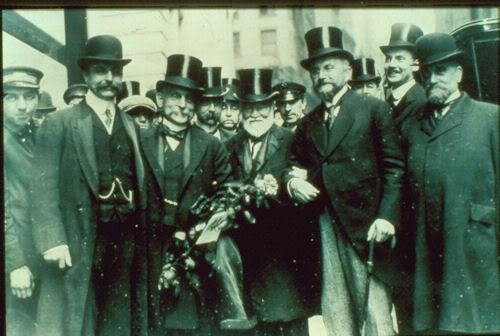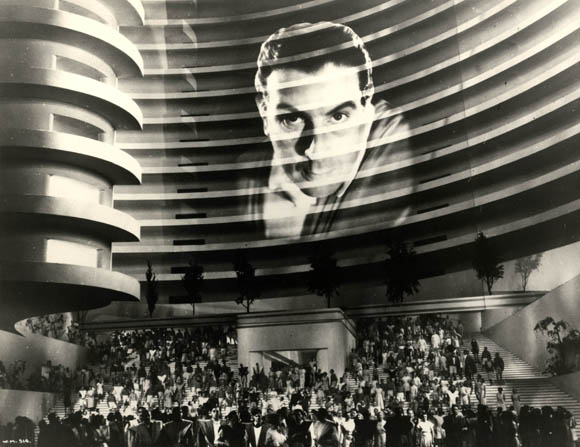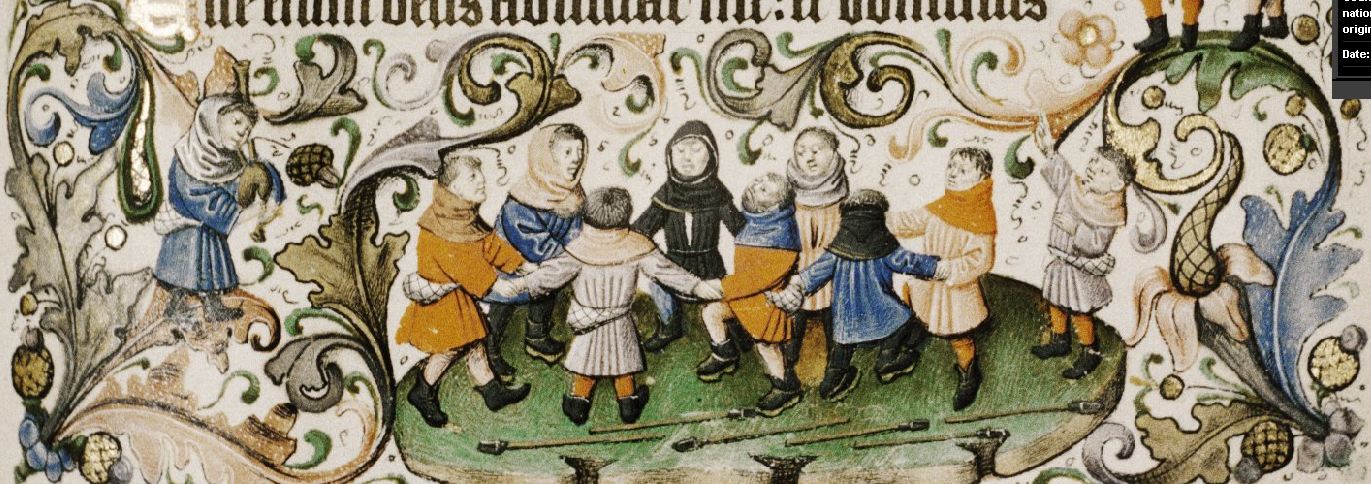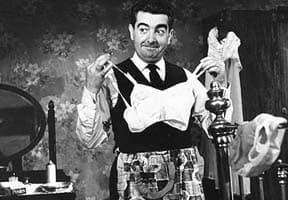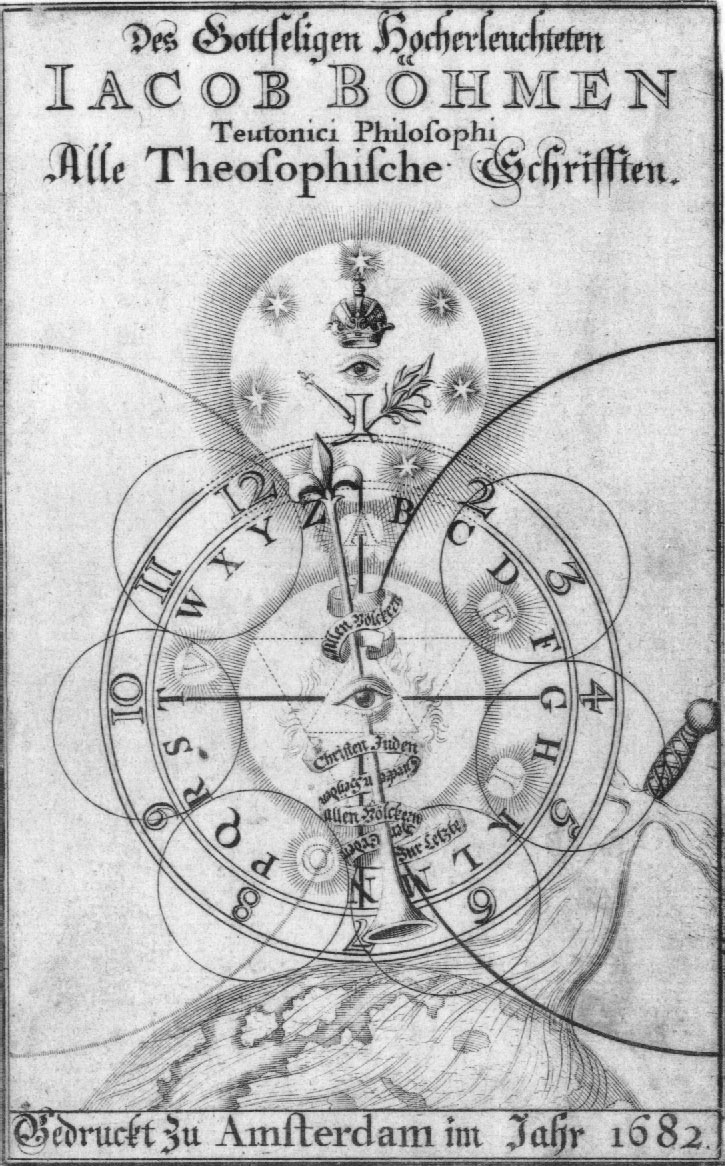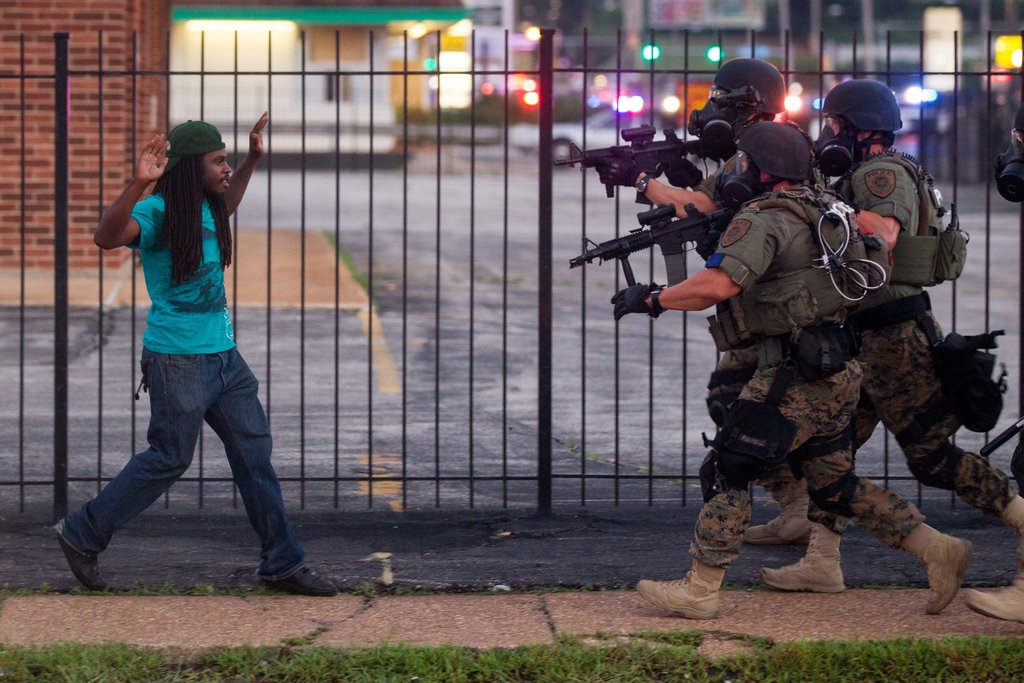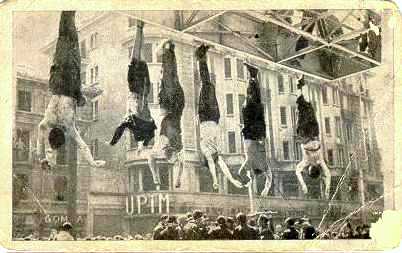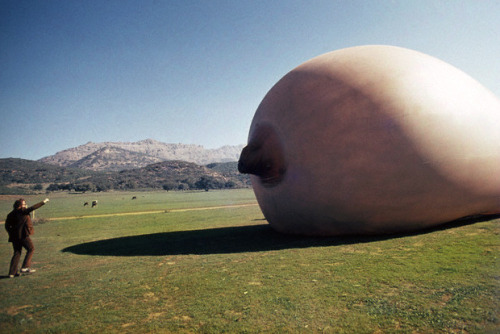
The poets, in this instance Shelley on the "Left," all recognized that political and spiritual freedom were identical and impossible to sever:
The loathsome mask has fallen, the man remains
Sceptreless, free, uncircumscribed, but man
Equal, unclassed, tribeless, and nationless,
Exempt from awe, worship, degree, the king
Over himself; just, gentle, wise. -- "Prometheus Unbound"
"Equal, unclassed, tribeless, nationless" -- this is what liberty truly consists of. The individual imagination is subject to no xenophobic or provincial limitations and boundaries. We are creators, makers, poets. The very act of sensing and perceiving, to refer to Nietzsche again, make us all better artists than we realize. We are the Unique Ones, as the individualist anarchist Max Stirner declared, and it is only through our own particular and unique visions that we sneak a peak at eternity.
The Scornful Aristocracy of Tramps
The age of revelations never ended. There are countless gods. We reject both the rigid monotheism of the Abrahamic orthodoxies and the equally suffocating monotheism of scientific materialism and reason. Sterner acolyte, Renzo Novatore, proclaimed the end to all -ologies and -isms. The only principle wide enough to encompass all of our desires and imaginings is life itself:
History, materialism, monism, positivism and all the isms of this world are old and rusty tools which I don’t need or mind anymore. My principle is life and my end is death. I wish to live my life intensely and embrace my death tragically.
You are waiting for the revolution? Let it be! My own began a long time ago! When you are ready (god, what an endless wait!) I won’t mind going with you for a while. But when you stop, I shall continue on my way toward the great and sublime conquest of the nothing!
Any society that you build will have its limits. And outside the limits of any society, unruly and heroic tramps will wander with their wild and virgin thought — those who cannot live without planning ever new and dreadful outbursts of rebellion! I shall be among them!...
All societies tremble when the scornful aristocracy of tramps, inaccessibles, unique ones, rulers over the ideal and conquerors of the nothing resolutely advances. So, come on, iconoclasts, forward!
Already the foreboding sky grows dark and silent! -- "Iconoclasts, Forward"
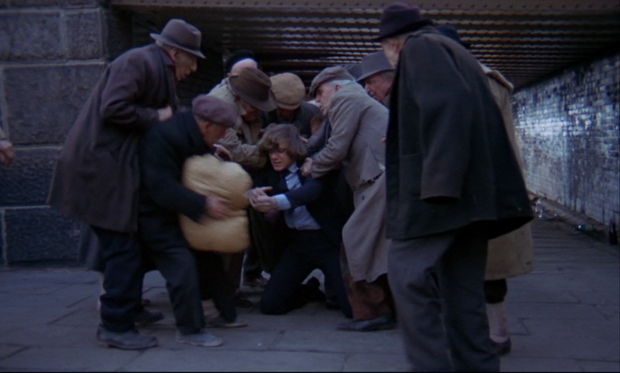
The sublime conquest of nothing! The only ground that truly exists, the only firmament where our stars can be hung, is nothingness itself. And nothingness is itself not a thing. Flowing emptiness -- endless, timeless, vacuumous and ecstatic. Beyond Church and State, Time and Space, Ear and Eye, Saturn and Jupiter. Hermetic anarchism should be first to be tossed on the intellectual bonfire of the vanities.
But of what practical use is this? How is this in any sense realistic? How does this help the suffering masses of Syria -- to name just one topical hellhole in a world full of dire agony? But anarchy dances on all floors. It is the closest thing we have to a liberation from all politics -- the terrible game that could be defined as the science of concentrating and wielding power. Anarchism, the reverse of this, is simply the process of maximally distributing and decentralizing all forms of power. And it is a process that does not end.
The miserable masses of Syria may in fact be best off in PKK-run Kurdish villages that are apparently (fingers crossed) practicing an effective form of "libertarian municipalism," as advocated by Murray Bookchin. Unfortunately, and this should come as no surprise, these Kurdish villages are precisely those under vicious attack from the U.S.'s latest bête noire, the terrorist supergroup, ISIS. The veil tends to fall hard quickly after it is raised even a sliver.
But, as in the anarchist city of Barcelona briefly during the thirties, these Kurdish experiments in anti-authoritarian living actually function. There is no shock here. History, or more accurately the cracks and margins within and outside the official pages of history, is dripping with similar stories of communities who were successfully able to become, at least temporarily, truly free.

Peter Kropotkin wrote an anarchist masterpiece on the immense influence of mutual aid on both the natural and social worlds. Kropotkin points out that the medieval city, free from feudal domination, with its craft guilds and other voluntary associations was a model of mutual aid and liberty.
In short, the more we begin to know the mediaeval city the more we see that it was not simply a political organization for the protection of certain political liberties. It was an attempt at organizing, on a much grander scale than in a village community, a close union for mutual aid and support, for consumption and production, and for social life altogether, without imposing upon men the fetters of the State, but giving full liberty of expression to the creative genius of each separate group of individuals in art, crafts, science, commerce, and political organization. -- Mutual Aid
Kropotkin goes on to say that much, in our own time, of what even anarchists consider to be utopian was already realized in the High Middle Ages.
More than that; not only many aspirations of our modern radicals were already realized in the middle ages, but much of what is described now as Utopian was accepted then as a matter of fact.
The point being that by no means are these ideals unachievable. Official history is only a fraction of the whole human story. And much of this story involves people living beyond the grasp of Church and State.

Imbecile Illusions
By now, though, it is difficult to even imagine a condition of freedom. Usura determines even the aesthetics of our our society. Everything has become utilitarian, mass-produced, conformist, disposable. Only those items which can easily be resold for a profit are not designed to be almost immediately obsolete. Nothing is built to last. All "products" are useful, convenient, unoriginal, ugly.
To overthrow usura is to qualitatively transform reality. Something like the medieval guild system would be restored. Objects would be crafted with pride, stamped with originality, made to please the eye and elevate the spirit. Cities transformed into collective works of art.
This is the polar opposite of the automotive hell that most of us somehow persist within today. Lawrence Ferlinghetti captured this best:
They still are ranged along the roads
plagued by legionnaires
false windmills and demented roosters
They are the same people
only further from home
on freeways fifty lanes wide
on a concrete continent
spaced with bland billboards
illustrating imbecile illusions of happiness

"This could be anywhere, this could be everywhere." To break this dark spell, a necrotic curse that materially binds us, has deep spiritual effects. Creation, reality construction, for the highest values sets off an upward spiral towards the eternal. Robert Duncan explains that everything taken from the commons is a step away from eternity and one more enmired in the suck of time.
It is toward what I have called the eternal that time is disturbed to awaken the workers of the world to the virtue, the power, that lies in their labor. The poet, too, is a worker, for the language, even as the field and the factory, belongs to the productive orders and means in which the communal good lies. All that is unjust, all that has been taken over for private exploitation from the commune, leaves us restless with time, divorced from the eternal. -- The H.D. Book
This process, though, can be reversed. It also provides a third option, a new direction. Beyond and outside of both private property and state control, with all the devices and mechanisms of oppression and imposed misery implied by these two, is the commons. This is an archaic place of freedom, now reduced to back alleys, weedlots and the unexploitable wild.
And yet this is the same place in which we all imagine. And in this fashion it is infinite. The commons stretches back through the free cities to the cave sanctuaries of the old stone age. And when it wells up again, first in the imagination, matter itself will be transmuted.
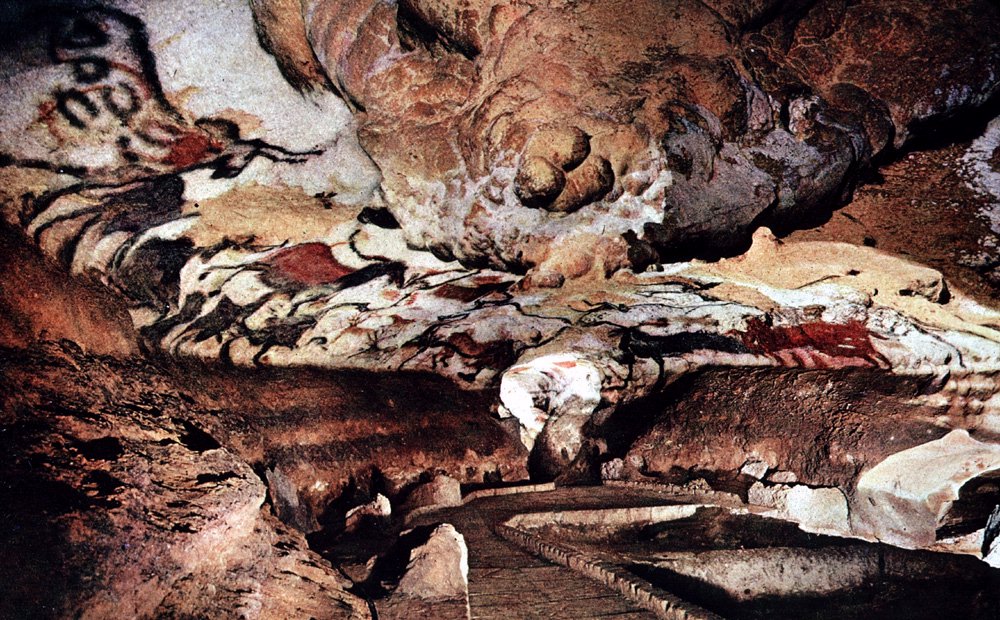
A Balance of Contradictions
Anarchy is the struggle for and celebration of the commons. It is not bound by property. Only a (non-)space of no limitations is able to satisfy it. And let us not be limited either by rigid categories. There is a plurality of anarchisms. Neither communist, nor individualist, nor both, nor neither. Robert Anton Wilson, as always, along with Robert Shea lay out the terms in sparkling lucidity. They begin by contrasting the free market with the state:
FREE MARKET: That condition of society in which all economic transactions result from voluntary choice without coercion.
THE STATE: That institution which interferes with the Free Market through the direct exercise of coercion or the granting of privileges (backed by coercion).
They go on to list and define the most prevalent forms of privilege -- taxes, usury, landlordism, tariffs -- and the dominant political-economic systems -- capitalism, conservatism, liberalism, socialism -- which are constructed around these varying forms of privilege. They finally arrive at anarchism itself:
ANARCHISM: That organization of society in which the Free Market operates freely, without taxes, usury, landlordism, tariffs, or other forms of coercion or privilege. “Right” anarchists predict that in the Free Market people would voluntarily choose to compete more often than to cooperate; “left” anarchists predict that in the Free Market people would voluntarily choose to cooperate more often than to compete. -- The Illuminatus! Trilogy
Thus, long before the current and sham craze to get beyond the left-right paradigm, Wilson and Shea were already pointing to anarchism as a system which both encompasses and transcends both. Their definition quickly karate chops both participants in the debate, sadly still continuing, between individualist and communist anarchists. True anarchy is both and neither. Both the individual and collective dissolve into what Kropotkin, and Proudhon earlier, termed the mutual. Proudhon's philosophy of mutualism is very solidly carried on and made new in the writings of Kevin Carson.

All individuals are always already members of collectives and all collectives are composed of unique individuals. Again, only through the particular is glimpsed the universal. There is no final stage in history, no ultimate ground upon which we all, humanity in general, will behold eternity. The difference, then, between Proudhon and Marx is essentially metaphysical.
James Billington, in his compelling history of radicalism, Fire in the Minds of Men, argues that the key split between Proudhon and Marx can be traced back to their diverging takes on the philosophy of Hegel.
Their different views of history were evidenced in the contrasting
uses they made of Hegel's thought. Broadly stated, Marx turned Hegel
upside down, making his theory materialistic rather than idealistic;
but he maintained the basic Hegelian view that reality was monistic and
that history was moving necessarily and dialectically toward the
realization of an ideal future order. In contrast, Proudhon left Hegel
right side up, maintaining the Hegelian image of history as a process
of ideas unfolding through contradictions.
But Proudhon insisted that the agony of contradiction would not lead
to despair or resignation as long as man did not look on the situation
with complacency or cynicism. The real answer for society was not
the mythic conclusion of some future, final synthesis; but the realistic
possibility that at every stage the contradictions which are part and
parcel of life itself could be held in equilibrium. Proudhon spoke of a
dynamic ever-changing equilibrium: an "equilibration" between forces
that would never either vanish or lose their venality. The balancing of
such rival forces, though always tense and precarious, was the highest
good that man can hope for on earth. -- Fire in the Minds of Men
A dynamic ever-changing balance of contradictions -- this is anarchy. It itself is a process and not a state. It is never completed. There is no ability for a monopoly of power to congeal. It makes no sense to say that anarchy or anarchism would never work. It is working right now. It will never be total, this is correct, but if it was it would not be anarchy. The final socio-political synthesis that the Marxists pine for is anathema to any anarchist worth his salt.

Even revolution is totalizing in this respect. The revolution is ongoing or it is nothing -- it is only the means for a new faction of power heads to seize the reins of the state. Lenin himself recognized this incongruity within classical anarchism. In The State and Revolution, Lenin quotes Engels on just this point:
Have these gentlemen ever seen a revolution? A revolution is certainly the most authoritarian thing there is; it is an act whereby one part of the population imposes its will upon the other part by means of rifles, bayonets and cannon, all of which are highly authoritarian means. And the victorious party must maintain its rule by means of the terror which its arms inspire in the reactionaries. Would the Paris Commune have lasted more than a day if it had not used the authority of the armed people against the bourgeoisie? Cannot we, on the contrary, blame it for having made too little use of that authority? Therefore, one of two things: either that anti-authoritarians don't know what they are talking about, in which case they are creating nothing but confusion. Or they do know, and in that case they are betraying the cause of the proletariat. In either case they serve only reaction. -- quoted in The State and Revolution
The authoritarian nature of revolution is hard to deny. The dire necessity of using force in order to remove force is one way that violent revolution is justified by classical anarchists. Another possibility, though, is to change our understanding of revolution. The revolution, or perhaps a more neutral term like "the ruckus" is preferable, could be defined as any action that moves towards individual autonomy and freedom and away from authoritarian control.
The ruckus, in this sense, is perpetual and all-pervasive. It continually creeps closer to anarchy but it never entirely reaches it. And yet it is not dissatisfied. The moment of ruckus itself is a "break thru" to eternity.

Outcast and Vagabond
Totality can only exist in the imagination. The anarchists, like the mystics, have had a vision of this, but they cease to be anarchists or mystics when they attempt to force their formulations of this vision upon others. Yet as vision alone it is pure and it inspires action toward liberty -- the ruckus.
One of the greatest of these visions came from an early anarchist, a friend and comrade of William Godwin, the poet William Blake. Blake also viewed secular revolutions as being mere steps to something greater which could only culminate in eternity. Revolution must lead to revelation or it must fail. The ultimate goal is apocalypse. Northrop Frye explains Blake's view:
If there is greater imaginative power in the revolutionary impulse, it is not so much because of what it accomplishes as because of what it is in itself. Revolution is always an attempt to smash the structure of tyranny and create a better world, even when revolutionaries do not understand what creation implies or what a better world is. The apocalypse will necessarily begin with a slaughter of tyrants, and Christ came, Blake says, to deliver those bound under the knave, not to deliver the knave.
Therefore the real war in society is the “Mental Fight” between the visionaries and the champions of tyranny. -- Fearful Symmetry
The "slaughter of tyrants" is general. It includes the deposing of earthly despots and psuedo-democrats, but it reaches beyond this to the principalities and powers in high places, the Archons, Jupiter and Saturn, space and time. The fight is mental. The battle field is the imagination and the final outcome of this great struggle is one world, really one man:
Once the heart and stomach of a larger human body appear, a larger human brain will soon follow them, and the Golden Age of Atlantis, when "all had originally one language, and one religion," will be restored. The religion will be the religion of Jesus, the Everlasting Gospel, and the language will be the tongue of Albion. Blake does not mean by one religion the the acceptance of a uniform set of doctrines by all men: he means the attainment of civilized liberty and the common vision of the divinity and unity of Man which is life in Jesus. By one language he does not mean English: he means, quoting the Bible and repeating Milton in Areopagitica, that all the Lord's people will become prophets: speak the language of the imagination, and the perception of the sun as a company of angels will be the rule rather than the exception. Further, he does not say that all were originally of one race or kingdom or empire, and though he symbolizes humanity by the name of his own nation, his has nothing to do with the frantic jingoism which a confused idea of the same symbolism might easily develop, and has developed in our day.
One language and one religion -- this sounds dangerously close to the most horrible projections of NWO paranoids. But this has nothing to do with the New World Order. The language is of the imagination and the gospel is everlasting. Both are are beyond representation. Both resist definition and monopolization by priests or kings. Both only exist in the particular and the singular, and both are embodied and rooted in the sounds and scents of untamed nature.
The one man is all men and women -- at once singularity and teeming multitude, universal but bewilderingly diverse. Blake called this man, Albion, and later Joyce named the same man, Finn and H.C.E. -- Here Comes Everybody. Adam Kadmon is another one of his names. And he is not only "he." The veiled exile returns. Shiva and his Shakti fucking eternally, always on the brink of orgasm and annihilation.

Robert Duncan, the anarchist and poet, extends Blake's vision even further. Beyond tribe, beyond nation, beyond race, beyond even the human species -- yet at the same time in the celebration of all of these. Finn manifests a universalism of all nature, of Pound's "stone alive, wood alive," a universe of singularities.
To compose such a symposium of the whole, such a totality, all the old excluded orders must be included. The female, the lumpen-proletariat, the foreign; the animal and vegetative; the unconscious and the unknown; the criminal and failure -- all that has been outcast and vagabond in our consideration of the figure of Man -- must return return to be admitted in the creation of what we are. -- The H.D. Book
Prism Planet
All attempts at summary, while welcomed, are inadequate and if taken as authority are intolerable. In the collapse of the priests and kings proper, science has taken on this authority for many. Hermetic anarchism accepts it as metaphor, as a practical means to limited ends, but as only one facet of the imagination. The scientific method is merely one method of many, useful in certain instances and pernicious in others. Paul Feyerabend called this embrace of a plurality of methods, epistemological anarchism.
Epistemological anarchism differs both from scepticism and from political (religious) anarchism. While the sceptic either regards every view as equally good, or as equally bad, or desists from making such judgements altogether, the epistemological anarchist has no compunction to defend the most trite, or the most outrageous statement.... His favourite pastime is to confuse rationalists by inventing compelling reasons for unreasonable doctrines. There is no view, however 'absurd' or 'immoral', he refuses to consider or to act upon, and no method is regarded as indispensable. The one thing he opposes positively and absolutely are universal standards, universal laws, universal ideas such as "Truth", "Reason", "Justice", "Love" and the behaviour they bring along, though he does not deny that it is often good policy to act as if such laws (such standards, such ideas) existed, and as if he believed in them.
The anarchism of being conjoins the anarchism of knowing. The so-called "new science" can be lucratively plundered for inspiring metaphors. Non-locality, self-organization, indeterminism, uncertainty, self-similarity, holographic structure, etc. are attractive not because they somehow, as scientific terminology, add credence and respectability to similar concepts within visionary traditions, but because they "make new" very ancient, even archaic or "primitive," understandings.

We did not, however, overthrow the authority of the church and its dogma only to accept the new mediation of scientists/specialists/experts. Instead, each is the exclusive expert of their own perception and reflection. The new science may resonate with much older mystical sources, but these latter go far deeper and explore the entire spectrum of human experience.
William Blake was one of the first to sound the alarm against the new dogma of scientific materialism. Blake called it "Newton's sleep," the "natural religion," an extreme narrowing of the range of the imagination and perception.
If it were not for the Poetic or Prophetic character the Philosophic & Experimental would soon be at the ratio of all things, & stand still, unable to do other than repeat the same dull round over again. -- "There Is No Natural Religion"
Other romantic poets followed in Blake's wake. Romanticism, in this sense, was not a new movement. It was a return to a a poetic understanding of life based on the primacy of the imagination. The only disagreement within the Romantic movement was whether, as Blake taught, nature was merely a facet of the imagination or, following Wordsworth, the imagination and nature perfectly mirrored one another. All Romantics, however, and all genuine poets of all countries and ages, are in agreement on the oppressive limitations of scientific materialism.
An anecdote of John Keats and William Wordsworth wonderfully reveals this critical spirit. The two poets were at dinner together, and Keats proposed a toast:
Confusion to the memory of Newton!
To Wordsworth's questioning of the reason for this toast, Keats replied that Newton "destroyed the poetry of the rainbow by reducing it to a prism." [The Romantic Imagination, Maurice Bowra.] It is easy to share Keats's concern. For reductive scientism a prism is really a prison of perception. It attempts to provide for humanity a final word on things, an authoritative explanation that can only be challenged by officially recognized experts.

Individual, singular visions and revelations are only accepted as potentially entertaining fancies -- nothing to be taken seriously unless one, like Pound and very nearly Blake, plans for an extended and enforced stay at the local bughouse. Private apocalypses are only tolerated if one is quiet about them, or if they are presented as harmless "fiction." This is the true extent of "freedom of speech."
Hermetic anarchists, though, perhaps now know more about Newton than did the romantic poets. Newton was really one of the last of the alchemists, his own allegiance to dogmatic materialism is only a projection onto him by later adherents of the new faith. And, contra Keats, the prism far from necessarily limiting our understanding of perception also demonstrates the ubiquity of the rainbow. Where there is light there is mystery. Keats's sentiment is sincere, but he need not have been concerned. Imagination is not that fragile.
Guerrillas gonna Guerrilla
The task of current poets and anarchists of the imagination appears to be more arduous than in the Romantic era. Nearly everything has become simulacra -- preformed, programmed, plastic, each a fully disposable and interchangeable unit in a uniform series with no original and no real difference.
How could it be possible for vision to penetrate into the eternal within a global system of usury where the real has been reduced to that which can be cheaply reproduced, priced and sold in non-localized, abstract markets? Even within this automotive, automated hell, though, the poets have not yet become extinct. There are cracks, glitches, blindspots in the panopticon, and enlightened madmen like PKD are always there to discover the divine in the detritus of the death culture.
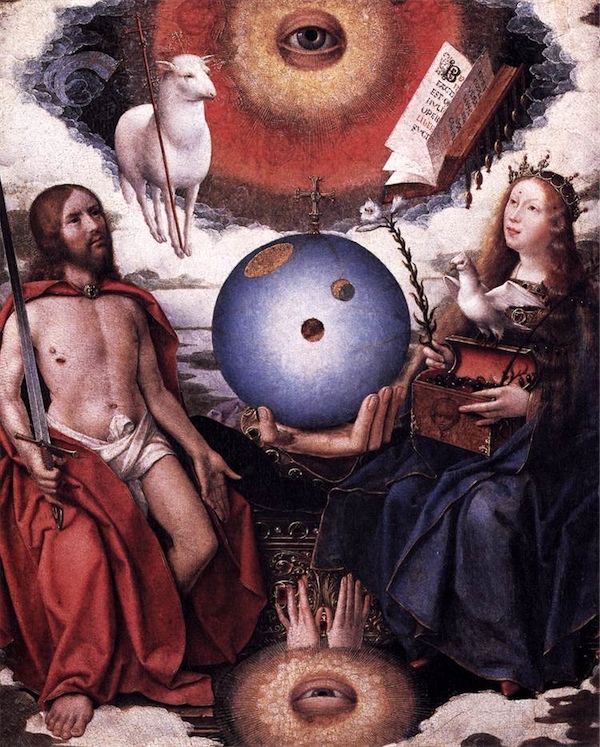
The vision is particular, singular, individual but it always opens up a vista of the whole. Both the neo-nats and the skeptoids offer only further fragmentation. The categories are defined slightly differently but we remain boxed in, fenced off. The other is othered.
Instead, the penetrating vision is fluid, polymorphic, eclectic. It remains polytheistic and pagan, unmediated and promiscuous, indefinite and contradictory. It is non-dualist but not dogmatically so. There is polarity in nature, in thought -- Crowley's 2=0. We affirm Nietzsche's rejection of Platonism -- there is immense value in the earth, in the flesh -- but there is a wide gap between the mundane view and that of eternity. This is reflected in Blake's "double vision," in Nagarjuna's "two truths." There is a kind of coitus of perception entwining the particular and the eternal, the renewal of the Golden Age within the present world.
And all agents of mediation have been eliminated from this vision. They are no longer there to take their cut, to add distance and alienation. And perhaps this is what is manifesting. The absolute panopticon can only exist as a nearly perfect mirror of the collective imagination set absolutely free. Total control may be only a hairsbreadth away from total liberation, just as the State's most effective strategy against a guerrilla insurgency is to go guerrilla itself.
It is not the internet that is liberating humanity, it is the collective imagination that is surfacing and manifesting as the architecture of the world soul.
The net is not the world; it is the imagination of the world. -- The H.D. Book (1961)

Already the parasitic middlemen are falling away, becoming irrelevant. In the music industry, in the film industry, the transformation is occurring in any place where information is abundant and can be given away without loss -- in education, in media, in medicine, even in design and manufacturing. And the trajectory here is extremely clear. The final gatekeepers who bar the doors to eternity are about to be swept aside, bypassed, ignored. The state and the big banks are the final middlemen to fall.
Direct democracy is now fully possible and is becoming a reality in places like Iceland and the central squares and parks of cities across Europe and America. Bitcoin ushers in a new era of P2P banking -- not the solution but a start, a Napster of peer financing. Even Bitcoin is already obsolete, needlessly centralized, too easy to manipulate. It is now but one of numerous cyptocurrencies. A few like Freicoin are modeled after one of Pound's heroes', the German anarchist Silvio Gesell's, ideas of an alternative currency based on demurrage. Gesell's conviction was that a currency, like any other commodity, should lose value over time, thus discouraging hoarding.
Pound's central concern about currency, of "the problem of issue. Who issues it? How?," is about to be addressed on a mass scale. And, beyond the purposeful summoning of oblivion which may also come, there seems to be no way of stopping this process. Michael Hardt and Antonio Negri spell this out beautifully in Multitude:
The deployments of marines and military bases scattered around the globe are not insignificant. And yet this picture, like an Escher drawing, is completely unstable and with a shift of perspective can quickly be inverted. The strength of unilateral deployments is suddenly revealed
as weakness; the center it raises up is revealed as a point of maximum vulnerability to all forms of attack. In order to maintain itself Empire must create a network form of power that does not isolate a center of control and excludes no outside lands or productive forces. As Empire forms, in other words, geopolitics ceases to function. Soon unilateralist and multilateralist strategies will both prove equally ineffective. The multitude will have to rise to the challenge and develop a new framework for the democratic constitution of the world.

As Blake and PKD taught, though, the Empire is not only externalized in bases and forces. Both it and the Temple are also within, but the way forward is the same. The commons will be expanded into all fields. All the representatives of time and space, and ultimately these Archons themselves, will melt away as the illusions they have always been. All authority will become drowned by the issue of the udder of eternity. Tits up!
The cycle has come round again. America is where Anatolia was. It is a place where human beings, just to stay alive, have to jump, to dance, and by dancing revive the rhythms, recover cyclical time. An-archic and pantheistic dancers no longer sense the artifice and its linear His-story as All, but as merely one cycle, one long night, a stormy night that left Earth wounded, but a night that ends, as all nights end, when the sun rises. -- Against His-story, Against Leviathan!





